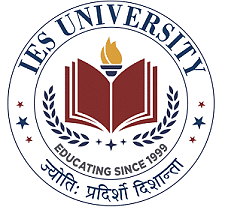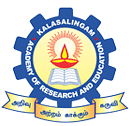B. Pharmacy
Introduction, Admission, Eligibility, Duration, Syllabus
Introduction about B. Pharmacy
A
Bachelor of Pharmacy (B. Pharmacy) is an undergraduate academic degree program
that focuses on the study of pharmaceutical science and practice. It is
designed by The Best University In India prepare students for a career in the
pharmaceutical industry, healthcare, and related fields. The curriculum of a B.
Pharmacy program typically covers a wide range of subjects, including
pharmaceutical chemistry, pharmacology, pharmaceutics, pharmacognosy,
pharmaceutical analysis, and pharmacy practice.
How can I apply for admission to B. Pharmacy?
The process
for applying to The Top University of
India for B. Pharmacy program , follow these general steps:
1. Research Programs and Universities:
·
Look for universities
or colleges that offer B. Pharmacy programs. Consider factors such as
reputation, faculty, facilities, and location.
·
Check the admission
requirements for each institution, as they may vary.
2. Eligibility Criteria:
·
Ensure that you meet
the eligibility criteria set by the university. Common requirements may include
completing high school with a science background (biology, chemistry, and
physics/mathematics) and a minimum GPA.
3. Entrance Exams:
·
Some institutions may
require you to take entrance exams. Inquire about any specific exams needed for
admission to B. Pharmacy programs, and prepare accordingly.
4. Application Process:
·
Obtain the application
form from the university's admission office or website.
·
Fill out the
application form accurately and completely. Provide all required information
and documentation, such as academic transcripts, letters of recommendation, and
a personal statement.
5. Entrance Interviews:
·
Some universities may
conduct entrance interviews as part of the admission process. Prepare for these
interviews by reviewing common questions related to your interest in pharmacy
and your academic and career goals.
6. Submit Application:
·
Submit your completed
application form along with all necessary documents by the specified deadline.
Pay attention to any application fees that may be required.
7. Wait for Admission Decision:
·
After submitting your
application, wait for the university's admission committee to review your
materials. The time it takes to receive a decision varies, so check the
university's communication channels for updates.
8. Acceptance and Enrollment:
·
If you receive an
acceptance letter, carefully follow the instructions provided to confirm your
enrollment. This may involve paying a deposit, attending orientation sessions,
and completing any additional requirements.
What is the eligibility for B. Pharmacy?
The eligibility criteria in Best
College of India Bachelor of Pharmacy (B. Pharmacy) programs may vary
slightly among different universities or educational institutions. However,
here are some common eligibility requirements:
1. Educational Qualifications:
·
Candidates should have
completed 10+2 or equivalent examination from a recognized board.
·
The qualifying
examination should include subjects such as Physics, Chemistry, and Biology or
Mathematics.
·
Minimum aggregate
marks in the qualifying examination may be required, and this can vary between
institutions.
2. Age Limit:
·
Some institutions may
have a minimum and maximum age limit for candidates applying to B. Pharmacy
programs.
3. Entrance Exams:
·
Some universities may
require candidates to appear for specific entrance exams as part of the
admission process. The scores obtained in these exams may be considered in the
selection process.
4. Subject Requirements:
·
Some institutions may
have specific subject requirements in the qualifying examination. For example,
a certain percentage of marks in Chemistry may be required.
5. Nationality/Residency:
·
Generally, Indian
nationals or foreign nationals meeting the eligibility criteria may apply for
B. Pharmacy programs.
How long does it take to complete B.
Pharmacy?
The duration of a Bachelor of Pharmacy (B.
Pharmacy) program at Top College
of India can vary depending on the country and the specific curriculum of
the institution offering the program. In many countries, including India, the
United States, and several others, a B. Pharmacy program typically takes four
years to complete. However, the duration may be different in some countries,
and variations in the curriculum or academic calendar can also affect the
overall timeline.
It's important to check with the specific university or
educational institution where you plan to pursue your B. Pharmacy degree to get
accurate and up-to-date information on the program duration and any specific
requirements.
Internship opportunities after
completing B. Pharmacy?
After completing a Bachelor of Pharmacy (B.
Pharmacy) degree at Affordable
University of India there are several internship
opportunities available in various sectors of the pharmaceutical and healthcare
industry. Here are some potential areas where you can find internship
opportunities:
1. Pharmaceutical Industry:
·
Research
and Development (R&D):
Work on drug discovery, formulation development, and clinical trials.
·
Quality
Control/Quality Assurance:
Ensure the quality of pharmaceutical products through testing and compliance.
·
Manufacturing: Learn about the production and packaging
processes of pharmaceuticals.
·
Regulatory
Affairs: Assist in ensuring
compliance with regulations and preparing regulatory submissions.
2. Clinical Research:
·
Work on clinical
trials to assess the safety and efficacy of new drugs or medical devices.
3. Hospital Pharmacy:
·
Gain experience in the
practical aspects of dispensing medications, patient counseling, and managing
inventory.
4. Community Pharmacy:
·
Work in a retail
pharmacy setting, interacting directly with patients, and gaining experience in
medication dispensing and counseling.
5. Pharmacovigilance:
·
Monitor and report
adverse effects of drugs to ensure patient safety.
6. Healthcare IT:
·
Explore opportunities
in health information technology, including pharmacy management systems.
7. Medical Writing:
·
Contribute to the
creation of regulatory documents, scientific articles, and other written
materials related to pharmaceuticals.
8. Sales and Marketing:
·
Learn about
pharmaceutical sales, marketing strategies, and product promotion.
9. Academic and Research Institutions:
·
Contribute to research
projects, assist in teaching, or pursue further studies.
10. Government Agencies:
·
Work with regulatory
bodies or public health agencies on drug safety, policy development, or
research.
11. Pharmaceutical Distribution:
·
Understand the supply
chain and logistics involved in distributing pharmaceutical products.
12. Biotechnology Companies:
·
Explore opportunities
in companies focused on biopharmaceuticals and genetic engineering.
Syllabus of B. Pharmacy?
The B. Pharmacy syllabus
encompasses the study of pharmaceutical sciences, including pharmacology,
pharmaceutical chemistry, pharmacognosy, pharmaceutics, and pharmaceutical
analysis. Students learn about drug development, dosage forms, and the
principles of drug action. The curriculum also covers regulatory aspects,
patient care, and practical training in pharmaceutical laboratories.












